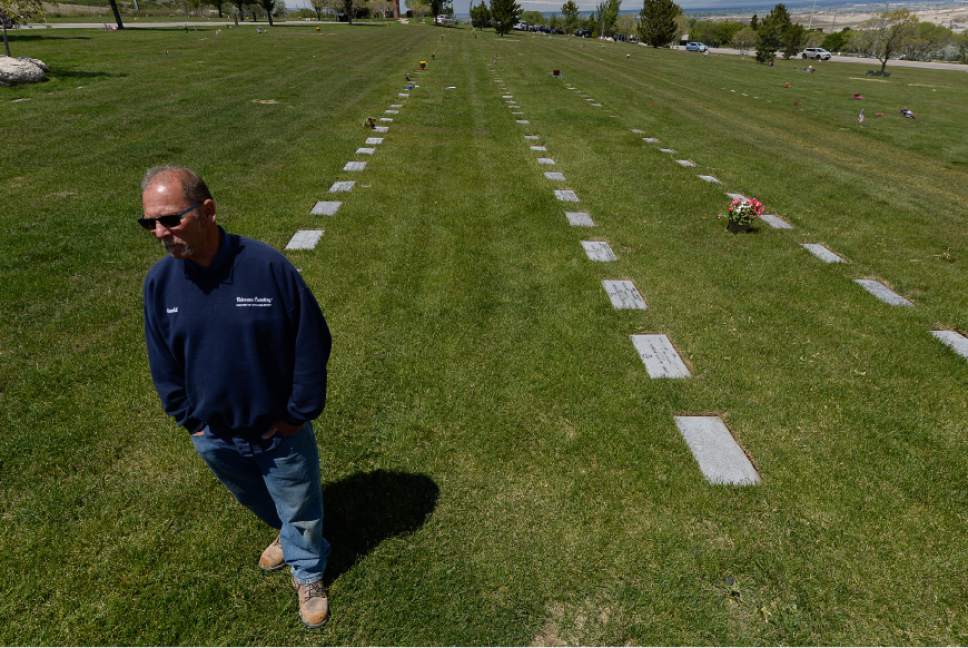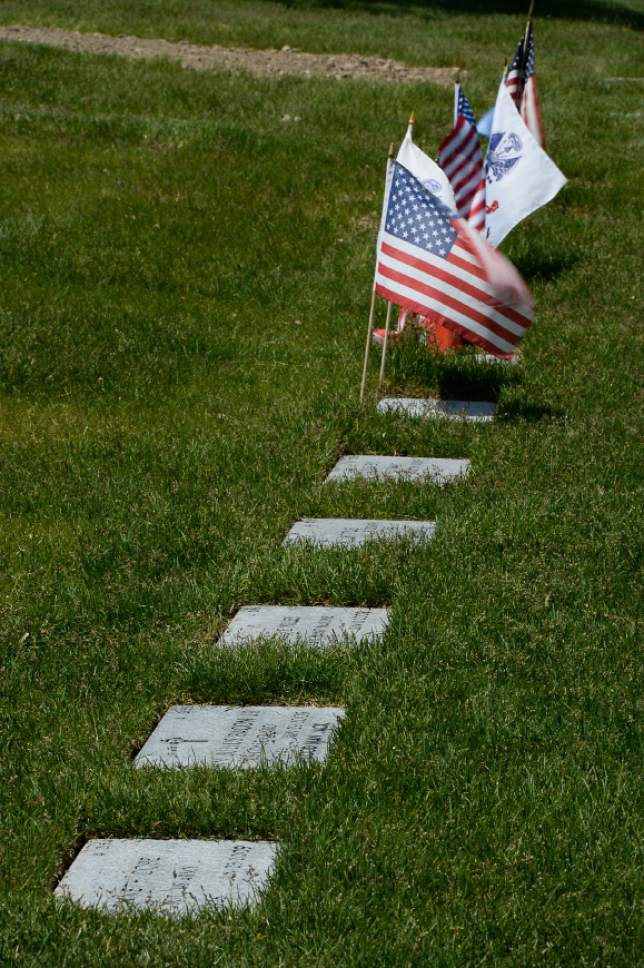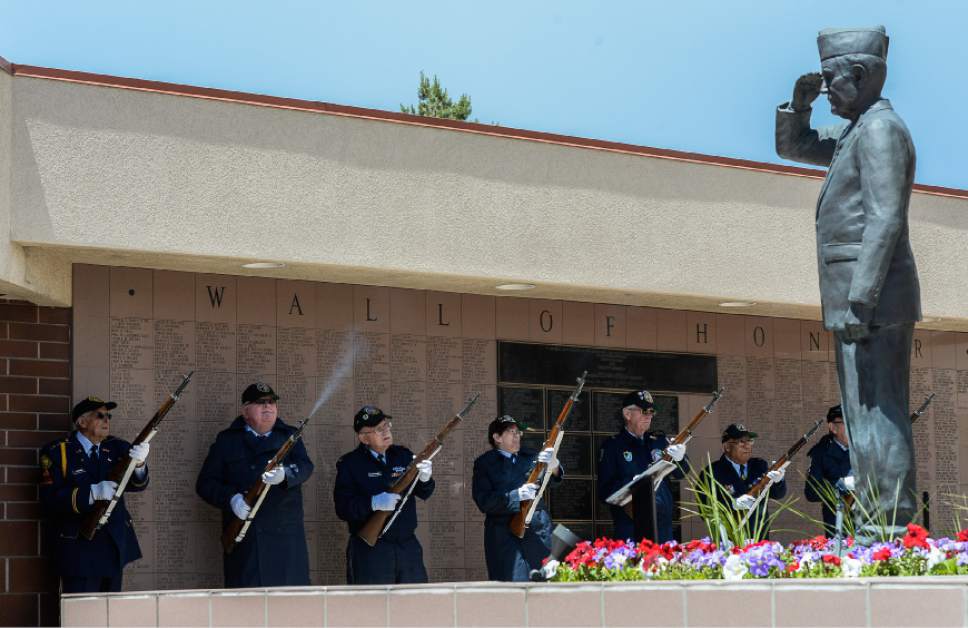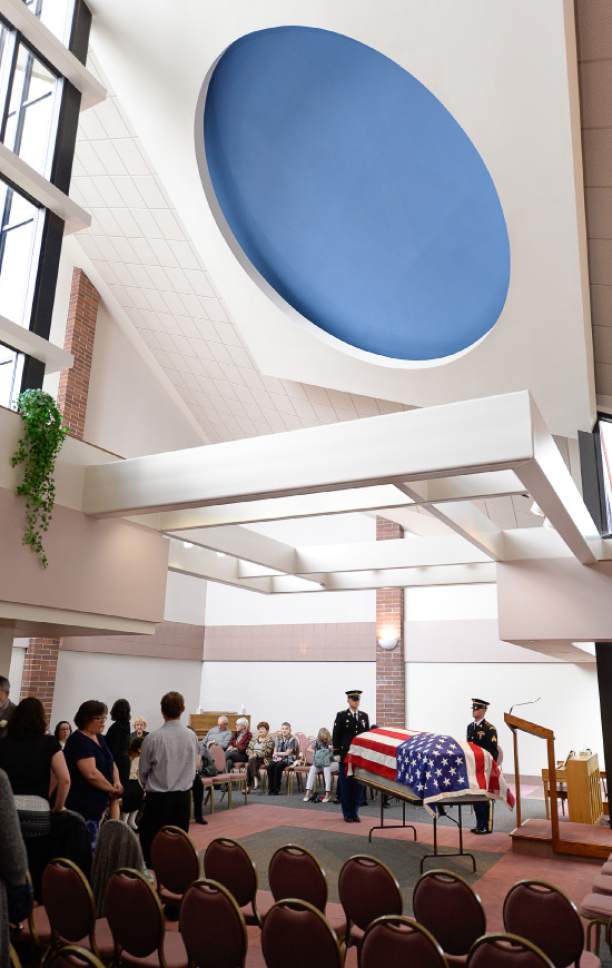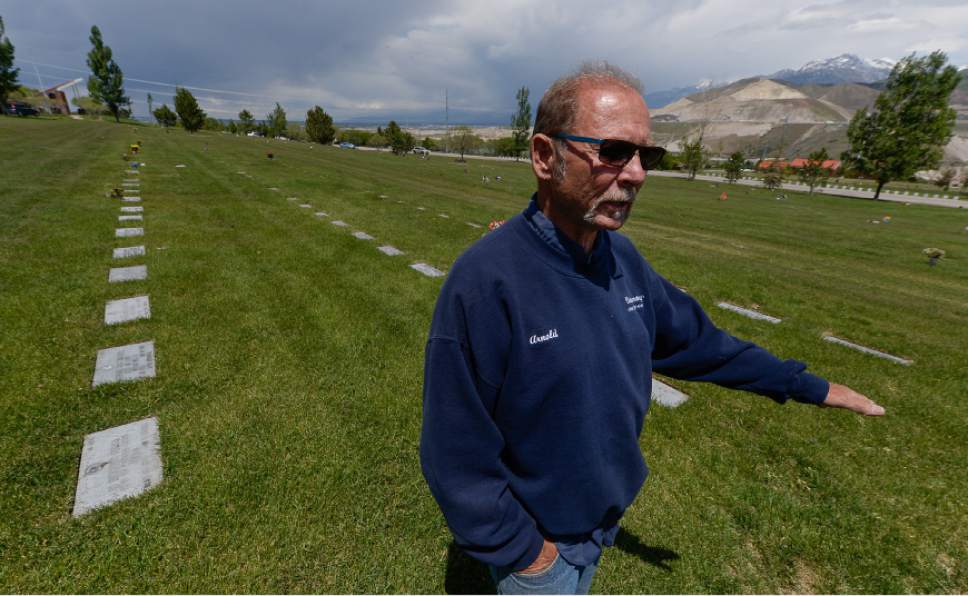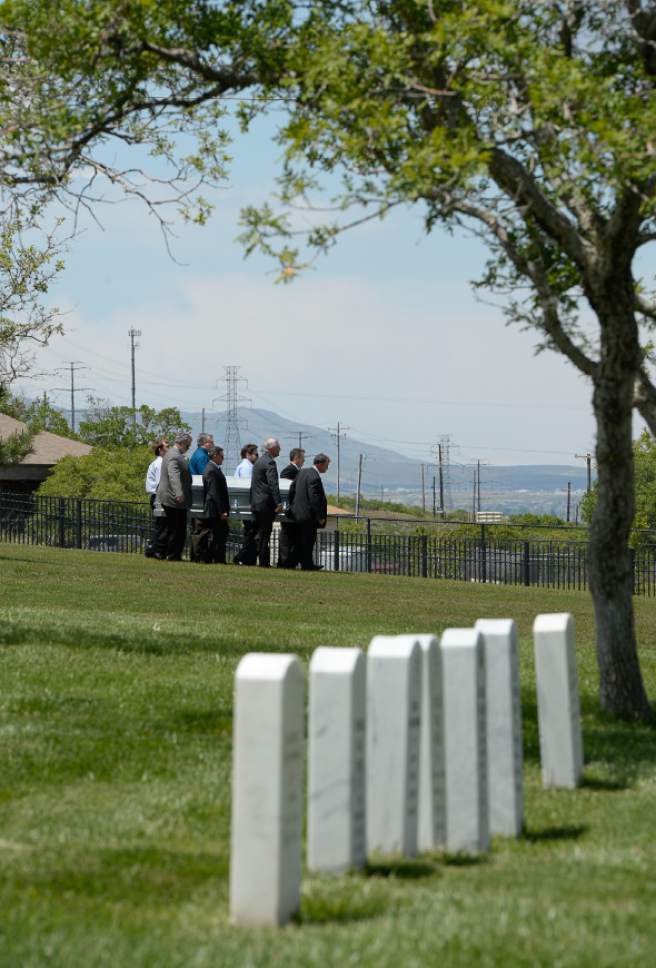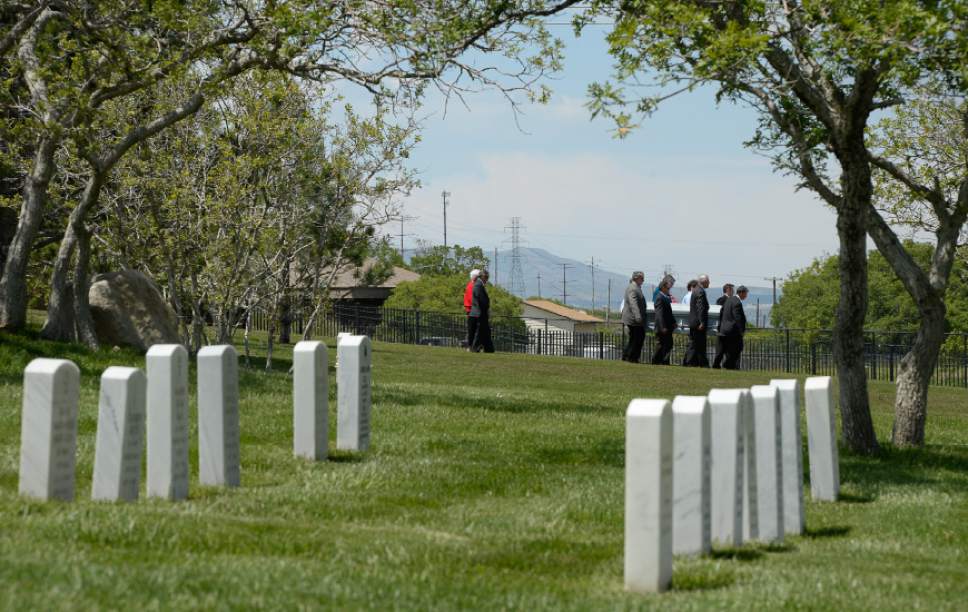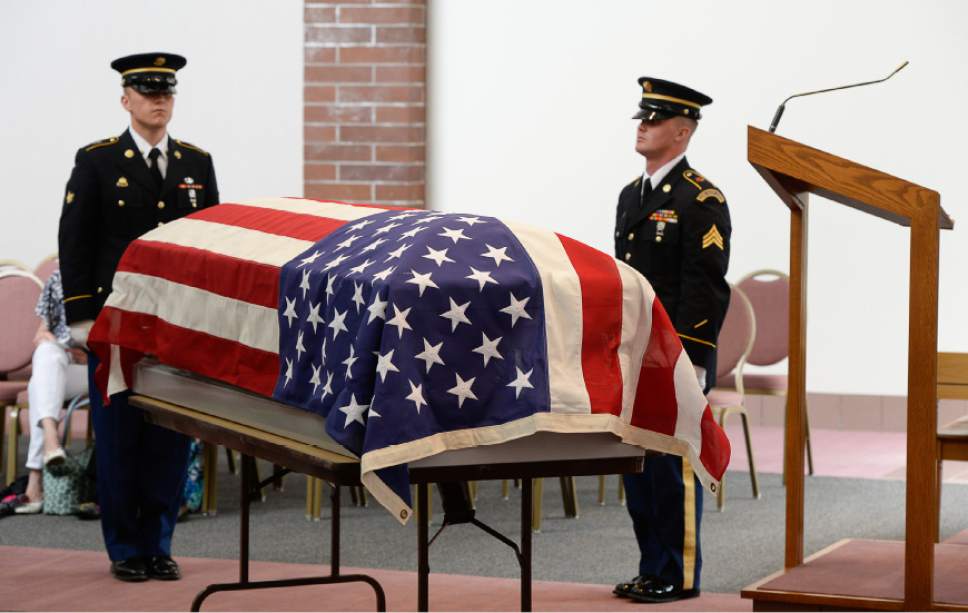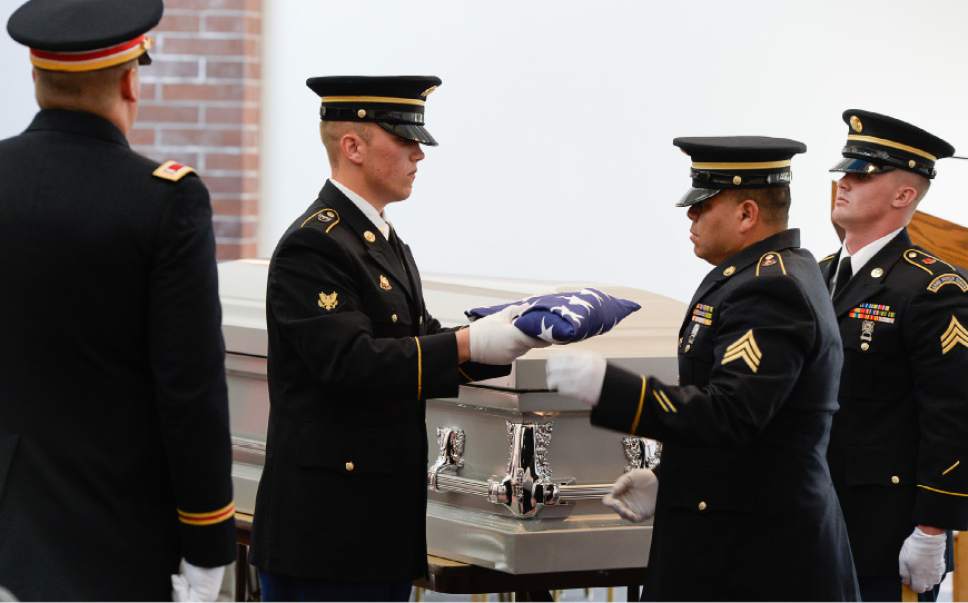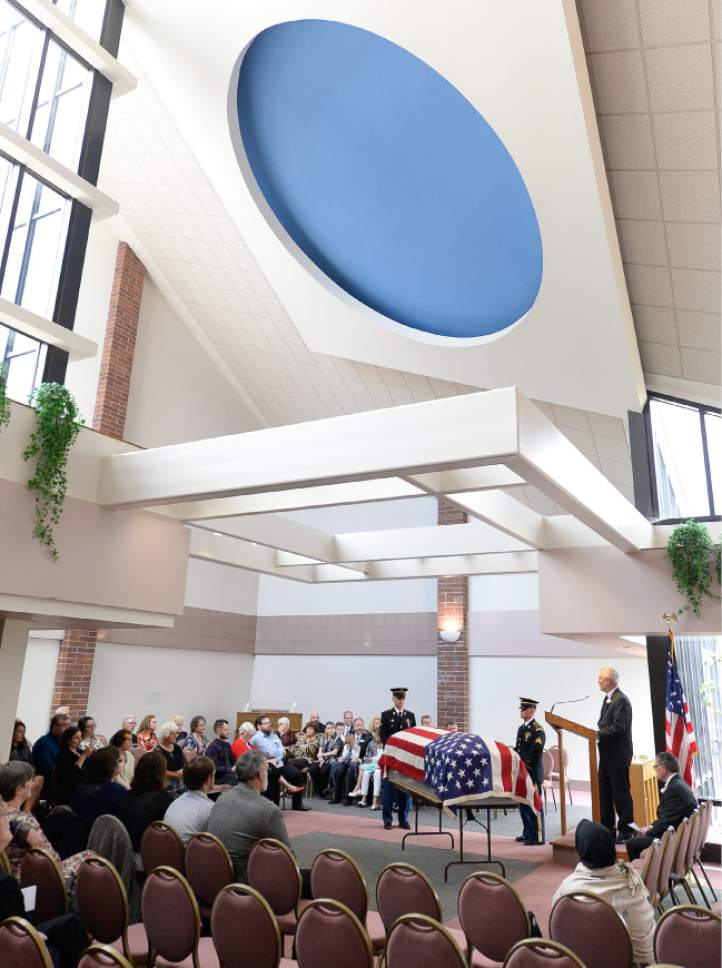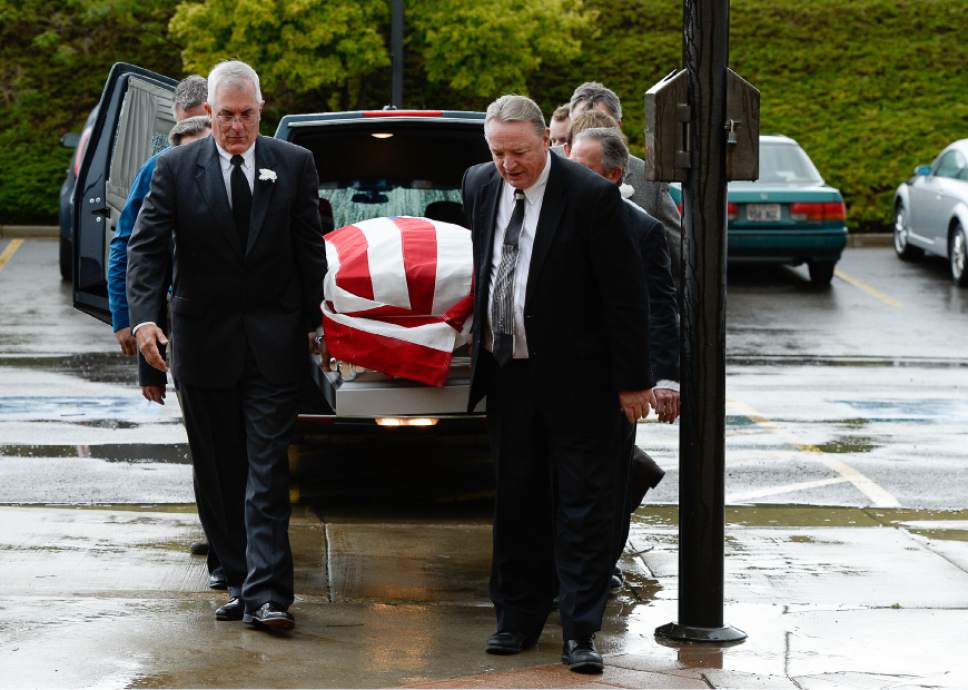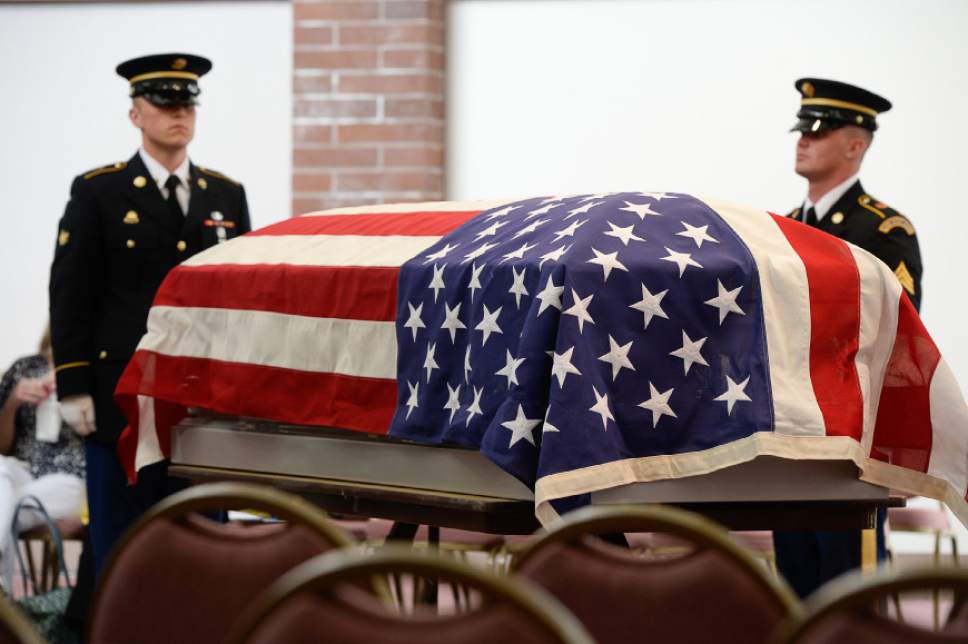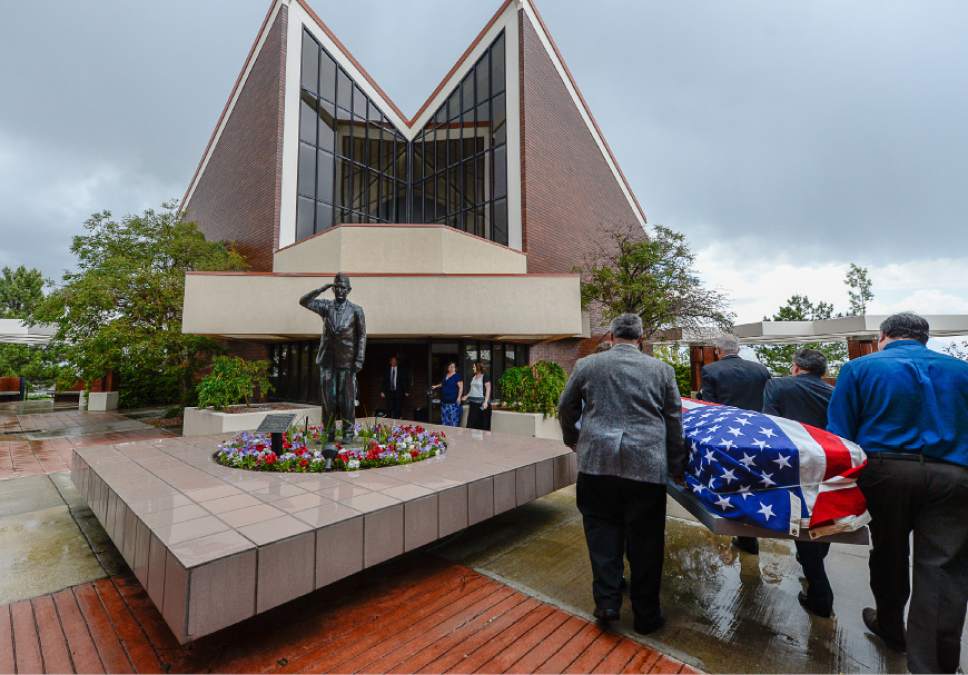This is an archived article that was published on sltrib.com in 2016, and information in the article may be outdated. It is provided only for personal research purposes and may not be reprinted.
Bluffdale • The wind started blowing just as the hearse carrying Gerald Folsom's casket arrived Wednesday at the Utah Veterans Cemetery and Memorial Park.
Rain began falling a few minutes later. The weather didn't stop the service. It just moved indoors to the cemetery's chapel. There, Folsom's son, one of his daughters, and his widow lauded him with eulogies that frequently raised Folsom's time in, and connections to, the military.
Folsom, was a co-pilot on a B-24 for the U.S. Army Air Corps during World War II. A few decades later, he started organizations to remember his squadron and bomb group, and made commemorative trips back to Europe.
"Dad really had a passion for preserving the history of the crews that fought overseas," said Folsom's son, Scott Folsom, as his father's body lay in a casket covered by a U.S. flag.
Folsom died May 19 at age 94. He was one of a growing number of military veterans choosing to be buried in Utah's only active veterans cemetery.
But the Utah Department of Veterans and Military Affairs says that in five to six years, the cemetery will no longer be able to accept new veterans for casket burials. Department staff and its director, Gary Harter, are looking for a site for a new cemetery.
Harter said he would like a new cemetery to remain in the vicinity of Bluffdale, but the state will consider other sites on the Wasatch Front.
"We always want to be able to honor veterans and have a solemn place where they can go," Harter said.
Harter said he is not worried. He is confident his department can find a site in time.
And even when the cemetery stops accepting new casket burials, it will remain open to allow cremated remains to be scattered in a scattering garden, or for urns to be placed in the cemetery's columbarium. Also, anyone with a spouse already buried in the cemetery will still be able to be buried there, too, Harter said.
The Utah Veterans Memorial Cemetery and Memorial Park was dedicated on Memorial Day 1990. Its program director, Arnold Warner, said when he started working at the cemetery in 1994, there were four burials a month.
In 2015, there were 467 burials of whole and cremated remains, according to statistics provided by Warner. He said the cemetery is ahead of pace, compared to this time last year.
While Utah's veteran population is relatively small — as of 2011, Utah ranked No. 37 among all the states in the sheer number of veterans — several factors keep the state's veterans cemetery busy. First, Utah is one of nine states without a cemetery operated by the U.S. Department of Veterans Affairs' National Cemetery Administration.
The VA is looking to add a cemetery in southwest Utah, but two sites near Cedar City were rejected last year as unsuitable, said Glenn Madderom, chief of the Cemetery Development & Improvement Service with the National Cemetery Administration. Madderom, in an email to The Tribune, said his agency will restart the process of finding a cemetery site in June. Once a site is chosen, design and construction will take 16 to 22 months, he said. That cemetery will be intended to serve veterans from southern Utah. It is not likely to alleviate burials at Bluffdale. Warner said most of the veterans buried there are from the Wasatch Front.
Also, while the National Cemetery Administration has rules about how long a veteran has to have served in the military, or whether he or she served in wartime, in order to be buried in one of its cemeteries, the Utah Veterans Cemetery will accept anyone who received an honorable discharge. There is no cost for a burial plot.
Paul Williams, of West Valley City, served four years in the U.S. Army. He is 56, disabled from his health problems and doesn't have much family left. He has decided he wants to be buried in a veterans cemetery.
If the state cemetery in Bluffdale isn't available when Williams dies, then he hopes a new cemetery is available.
"I consider it as part of my benefits as far as being a solider, and I want to be with soldiers when I pass away," Williams said.
Amanda Vincent, 38, of Layton, spent nine years in the Air Force. Her husband was in the Air Force for 26 years. They have plans to be buried with family in a civilian cemetery, but Vincent is supportive of veterans cemeteries and wants Utah to find a new site to bury its military dead.
"They need somewhere to go, and often times families do not have the resources to pay for burial plots," Vincent said.
At Folsom's funeral, the sun came out as the honor guard fired their rifles and a recording of "Taps" was played. The hearse took the casket to the gravesite down the hill from the chapel.
At the gravesite, Folsom's family shared more stories about him.
Scott Folsom, a retired University of Utah police chief, said his father wasn't always so active in veterans organizations — but it became important to him late in life.
"The military is a family and a brotherhood," Scott Folsom said.
Twitter: @natecarlisle


